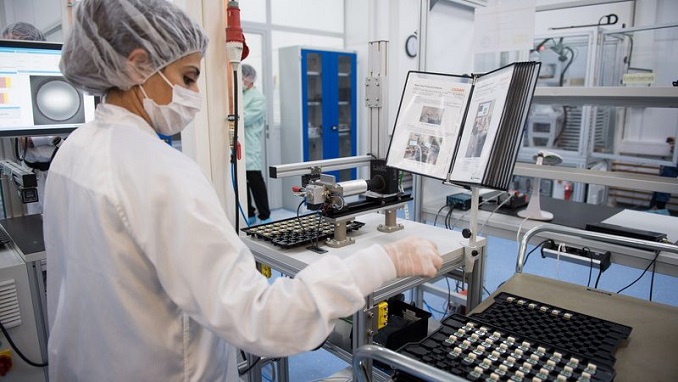Innovative biotech firms stand to gain from legislation that would help startups gain access to capital they need and spend more of that capital on research.
The Expanding Access to Capital Act (H.R. 2799), sponsored by House Financial Services Committee Chairman Patrick McHenry (R-NC), was passed by the House on March 8. The bill incorporates previous legislative proposals as well as some last-minute amendments that facilitate investment in new ideas.
As one of the most research-intensive industries in the world, biotech has a lot to gain from the bill.
“This legislation is especially important for biotech startups who are often in the lab without a Food and Drug Administration (FDA) approved product for a decade, and therefore generating no revenues,” said David Lachmann, Senior Director of Federal Government Relations at the Biotechnology Innovation Organization (BIO). “BIO has been working with members of Congress to enact reforms to reduce costly regulatory burdens and help draw new investment to these cutting-edge innovators.”
What H.R. 2799 would do
H.R. 2799 would reduce various regulatory burdens for small, emerging companies. As one example, the bill would allow a company to forgo securities registration when its security offering over 12 months totals $250,000 or less.
The bill also incorporates the text of Rep. Bryan Steil’s (R-WI) H.R. 2624, Helping Startups to Grow Act. This bill is designed to extend certain advantages that already existed under the 10-year-old JOBS Act. The Jumpstart Our Business Startups (JOBS) Act allows firms below a certain income and market cap to receive Emerging Growth Company (EGC) designation. This lets them forgo certain regulatory requirements that can have a compliance cost of $1 million or more.
The new language proposed by Rep. Steil means that, under H.R. 2799, a company with EGC designation could avoid these compliance costs for up to seven years instead of the current five. It would also increase the maximum annual gross revenues for companies eligible for the EGC designation to $1.5 billion.
How the legislation encourages investment
The bill also encourages more investment through measures like a bipartisan amendment offered by Rep. Ann Wagner (R-MO), along with Reps. Gregory Meeks (D-NY), Wiley Nickel (D-NC), and David Scott (D-GA), to allow “a closed-end investment company, an entity that invests in securities using money raised in its initial public offering, to invest its assets in securities issued by private funds,” according to Rep. McHenry.
“This affords investors and employees of small, private companies an extra exit opportunity outside of IPOs or mergers in which they can monetize their shares,” Lachmann explained. “It would also allow non-accredited investors access to private market securities through an exchange-traded security, thus increasing the opportunity for economic exposure to one of the most robust markets in the U.S.”
Another way H.R. 2799 would support investment is by loosening the rules for qualifying as a venture capital fund. Venture capital funds can be more agile and active because they avoid certain regulations that restrain other types of investment firms, including rules on filings, audits, and communication with investors. The bill would increase the amount VC funds can spend in capital contributions and commitments from $10 million to $150 million, and the number of investors they can include from 250 to 600.
The next steps for H.R. 2799
The legislation must be passed by the Senate before it can be sent to the president for signing into law.
“By successfully balancing sound market-protecting regulations with enhanced access to capital, Congress can promote early-stage innovators who are the source of most innovation in the biotechnology field,” according to Lachmann. “BIO looks forward to Senate action on these important measures.”




